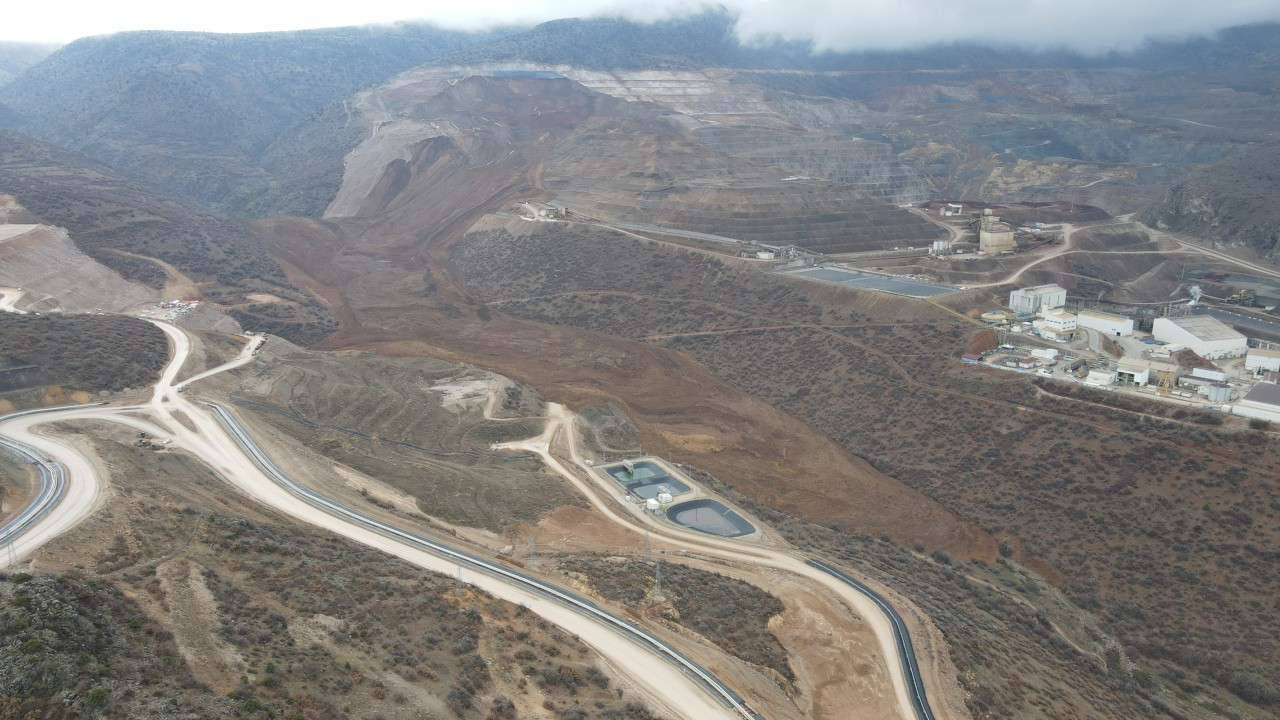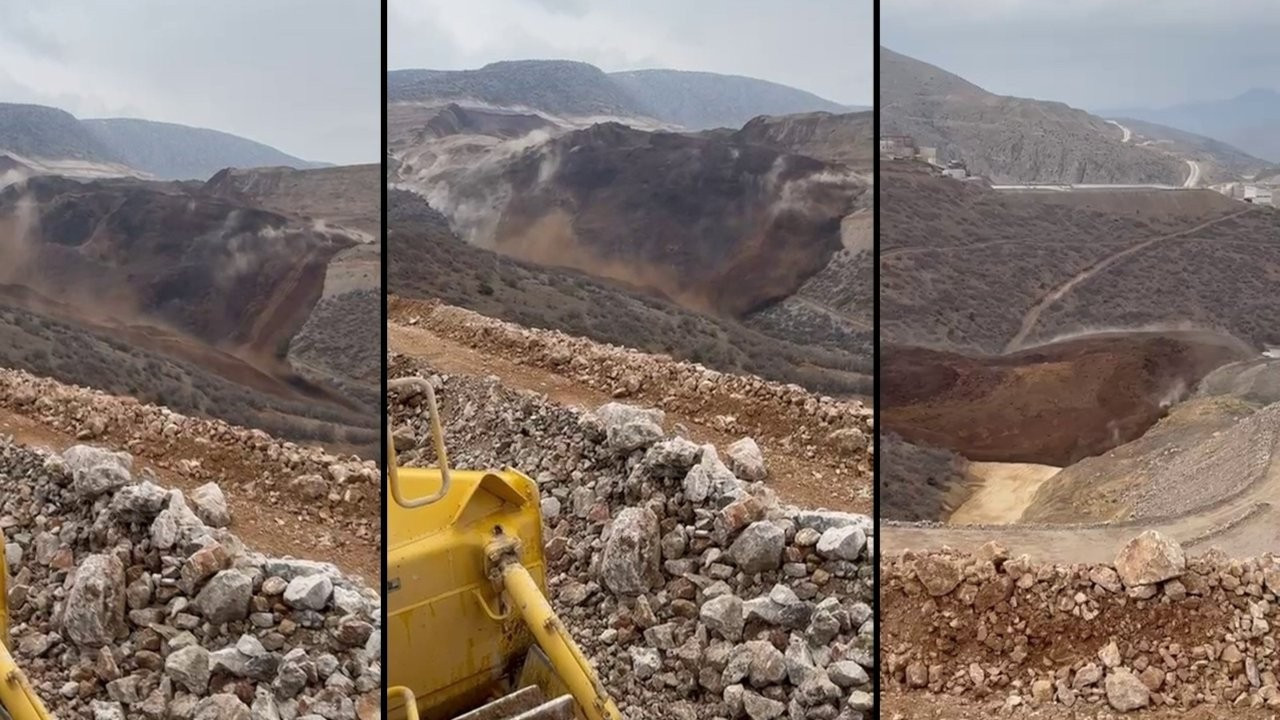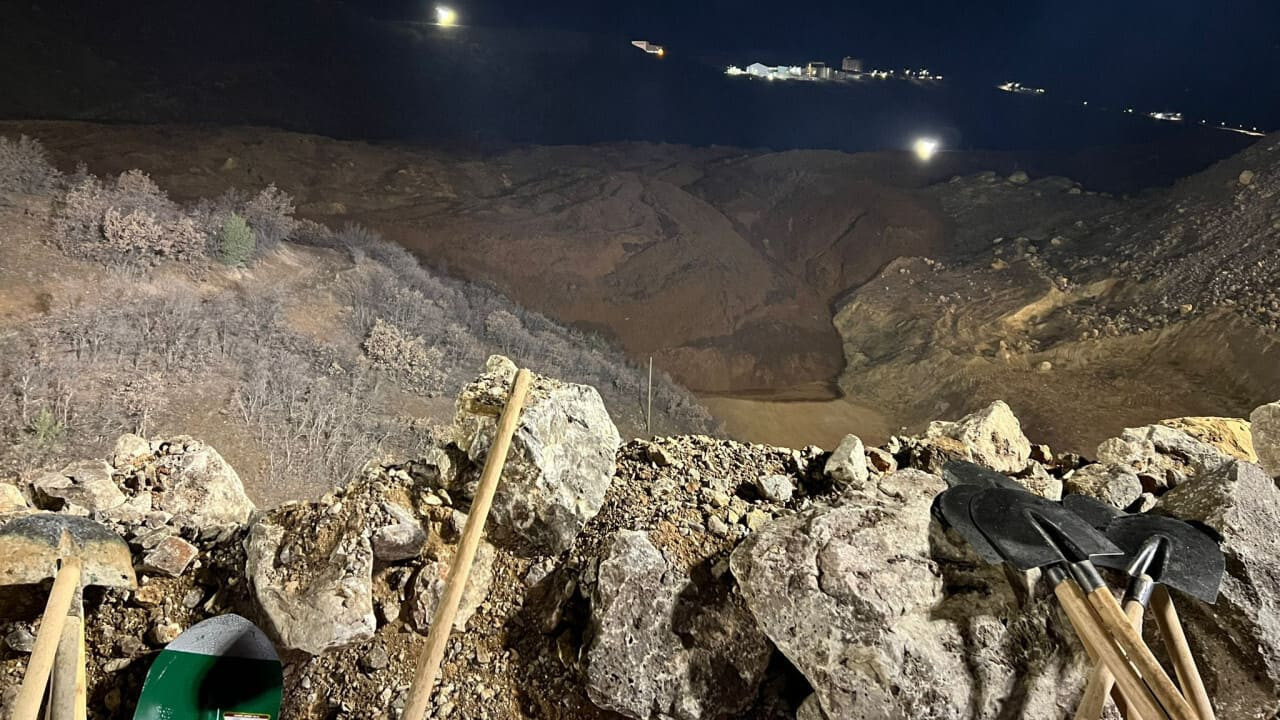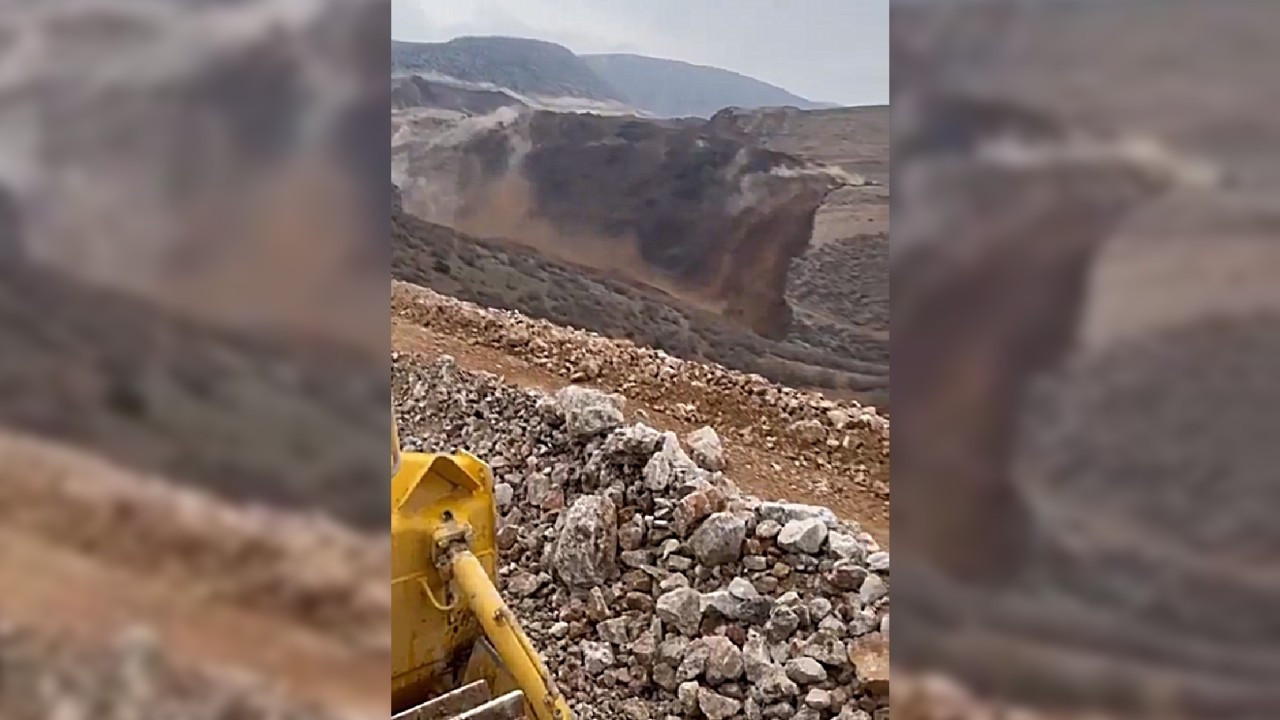Miner says company aware of landslide risk two days before Turkey's mining disaster
Speaking to Gazete Duvar, a worker from Anagold stated that the company knew about the landslide risk two days before Turkey’s mining disaster that trapped nine workers under a land mass and caused a severe cyanide spill.
Ceren Bayar / Gazete Duvar
A worker from Anagold Mining Company, who did not want to be named, told Gazete Duvar that Anagold's occupational safety expert came to the workers after the disaster and told them that they had known about the crack that caused landslide for two days.
On Feb. 15, three days have passed since the mining disaster at the Çöpler Gold Mine in the İliç district of Erzurum in which nine workers were buried under a thousands of tons of mass caused by a landslide.
While the search and rescue operations for the trapped workers continue, around 400 workers have being kept at the construction site until the rescue operations are completed.
The Anagold worker stated that the occupational safety expert said that the company was aware of the risk two days in advance and added, "Workers saw the crack and warned (the company) about it, yet they did not take it into consideration. The company told us that they evacuated the site. If it was evacuated, why did these people stay under the ground? If we had not realized, we could have died too."
The worker explained that they wanted to intervene to those trapped under the land mass after the incident but were stopped. They said, "We wanted to intervene directly, the location of the truck was already clear. We were going to open a road and take it out. It would not take long to find it, but then they stopped us."
Giving information about the search and rescue operations, Minister of Energy and Natural Resources Alparslan Bayraktar on Feb. 15 also said, “We observe that the operating company here is particularly weak at the management level. Representatives of the foreign company in question are still not here. We will look into this issue intensively after we finish the search and rescue process."
"The soil removal process from here will take two years, even if we work day and night," the worker emphasized, highlighting the cyanide danger. "This soil contains cyanide; it cannot be disposed of casually. Proper isolation measures are imperative," he cautioned.
Minister Bayraktar underscored that there was a soil mass of 10 million cubic meters in the site and they needed at least 400,000 trucks even if they “have the means.”
The worker argued that 40 percent of the material flowing in the landslide footage was cyanide and added, "(The authorities) said that the culvert covers have been closed, but they are only trying to block the water with diggers. There is no such thing as a cover. That water is leaking from the bottom. What flows looking like mud is actually cyanide and acid."
The Turkish Environment Ministry announced on Feb. 14 that they have not observed any pollution in the Euphrates River thus far. As a precautionary measure, the covers of the culvert where the stream in the site reaches the Euphrates River were closed to prevent any potential impact on the river, according to the Turkish authorities.
The miner told that there was a minor leak in the same site in the past years and the mine was closed for three months and added that the danger became graver as there are millions of tonnes material exposed to the cyanide. The worker warned that the stream bed in the area has been closed with exposed soil after the landslide and water has been accumulating there.
Even though another leakage at the same site occurred in 2022, the mine began to operate after three months after paying an administrative fine and the $7.2 billion tax debt of the mining company was written off couple of months later.
The Anagold worker said, "What will happen when that water overflows? Will the culvert stop the water? If that accumulated water overflows, it will completely drag the mud into the Euphrates River.”
The worker emphasized that while rescue operations appear to be underway, there has not been any substantial effort, and the challenging terrain makes it extremely difficult for effective rescue operations to take place. "Cyanide and acid are now in contact with water. Normally, not even a drop of it should touch the soil,” they added.
(English version by Can Bodrumlu)

 Relatives of miners trapped after landslide: ‘Gold for company, death for us’Domestic
Relatives of miners trapped after landslide: ‘Gold for company, death for us’Domestic No cyanide flow into Euphrates River after mine disaster in Turkey, ministry and firm claimEnvironment
No cyanide flow into Euphrates River after mine disaster in Turkey, ministry and firm claimEnvironment Turkish government repeatedly authorizes capacity expansion to mine leaked cyanideEnvironment
Turkish government repeatedly authorizes capacity expansion to mine leaked cyanideEnvironment Landslide at gold mine traps workers, exposes cyanide in eastern TurkeyDomestic
Landslide at gold mine traps workers, exposes cyanide in eastern TurkeyDomestic